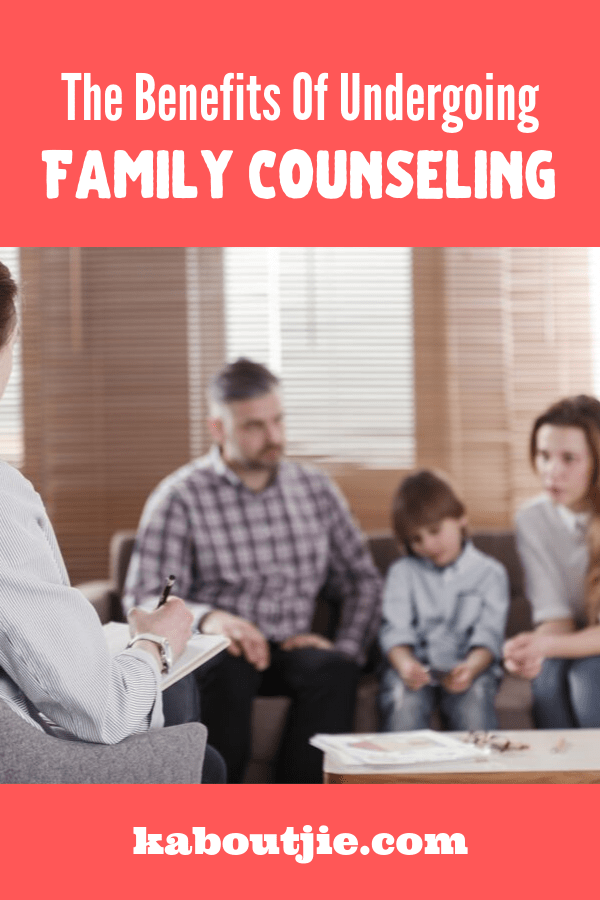Every family has its own issues and their unique way of communicating (or not conversing with) the other family members. Even though the concept of family has changed over the years, one thing has remained the same. Everyone is brought up in some form of family unit. Within a family unit, when one member is having issues, it can affect all the other members. When a family member is battling addiction, everyone around him is suffering too. And for this reason, family counseling can be advantageous. Family therapy is often utilized in combination with treatment of the individual’s problem which is affecting the entire family unit, for instance divorce, addiction or behavioural issues. During family therapy, the family is viewed as the unit whereas the person who is abusing substances is viewed as a part of the sub-system. All things are intertwined in any system. That’s why instead of dealing with issues solely on an individual basis, family counseling acknowledges that an individual’s problems within a system affects everyone in the family. The solution, therefore, is involving all family members in therapy. The aim of family counseling is to address the needs of all family members and striving to obtain a result where all members function better. When a family as a whole functions better, every person within the system fares better.

Situations where family counseling is useful:
- Preparing for a divorce or separation.
- Dealing with the loss of a loved one or someone close to the family.
- Preparing for remarriage.
- Dealing with mental or behavioural issues in one or more family members.
Family therapists can offer guidance to a wide selection of issues, including:
- Personal battles within families or couples.
- Unexpected death, illness or unemployment.
- Developing and maintaining a healthy romantic relationship during any stage.
- Behavioral problems with children.
- Substance addiction or abuse.
- Mental health problems like anxiety and depression.
The benefits of family counseling
- Members of a family unit learn what each other’s weaknesses and strengths are.
- Learning improved methods to communicate feelings, encouraging family members to be honest with one another, resulting in enhanced intimacy and stronger bonds within the family unit.
- Learning better ways of resolving issue.
- Resolving sibling problems.
- Gaining better parent-child engagement.
- Gaining clear perspective on how the family is functioning and every person’s role.
- Discussing feelings about certain problems that the family has been struggling with and finding solutions.
- A better awareness of healthy family patterns, boundaries and dynamics.
- Improved communication.
- Better problem-solving.
- Deeper empathy.
- Lowered conflict and improved anger-management abilities.
- Bringing families together after going through a crisis.
- Encouraging honesty between members of the family unit.
- Instilling trust among family members.
- Generating a supportive family bond and environment.
- Lowering the sources that creates stress and tension within the family unit.
- Helping members of the family unit with forgiving each other.
- Conflict resolution within the family.
- Bringing back isolated family members into the family unit.
Studies have revealed that many individuals who are struggling with addiction issues started acting out in their adolescent years. During this stage of a person’s life, family are usually the backbone of their everyday life. Teens typically begin experimenting for different reasons, but many of these reasons fall back on their feelings within their family unit during the time. Therefore, family counseling can be useful. When one person starts acting in a negative manner, it has an affect on the whole family, the same happens when a person starts acting positive. For a struggling addict, their outlook is to get clean and remain clean. This is their main focus, as it will be for a while. The other members in the family unit are often overlooked and expected to forgive and forget the damage that was caused by the other family member. With family counseling the entire family can start to heal.

Conclusion
Family counseling and therapy is a method for you and your family to learn how to establish and maintain a healthy family relationship, how to communicate with each other and work in unison to solve family issues. This type of therapy is distinctive, in that issues are assessed through a wider lens and as part of a complex system of the family. With this perspective, the family therapist can help the family to establish the root of their issues and start facilitating healing among all members of the family unit. A family counselor can help, whether the issue is substance-abuse or addiction-related, due to mental illness disorders, dire and unexpected circumstances, or just dealing with everyday stress that everyone struggles with at some points. If your family is combatting some problems, don’t feel that you are alone since no family is perfect. Getting into family therapy can help with making your family stronger.
 Kaboutjie SA Mommy Blogs by Lynne Huysamen
Kaboutjie SA Mommy Blogs by Lynne Huysamen




